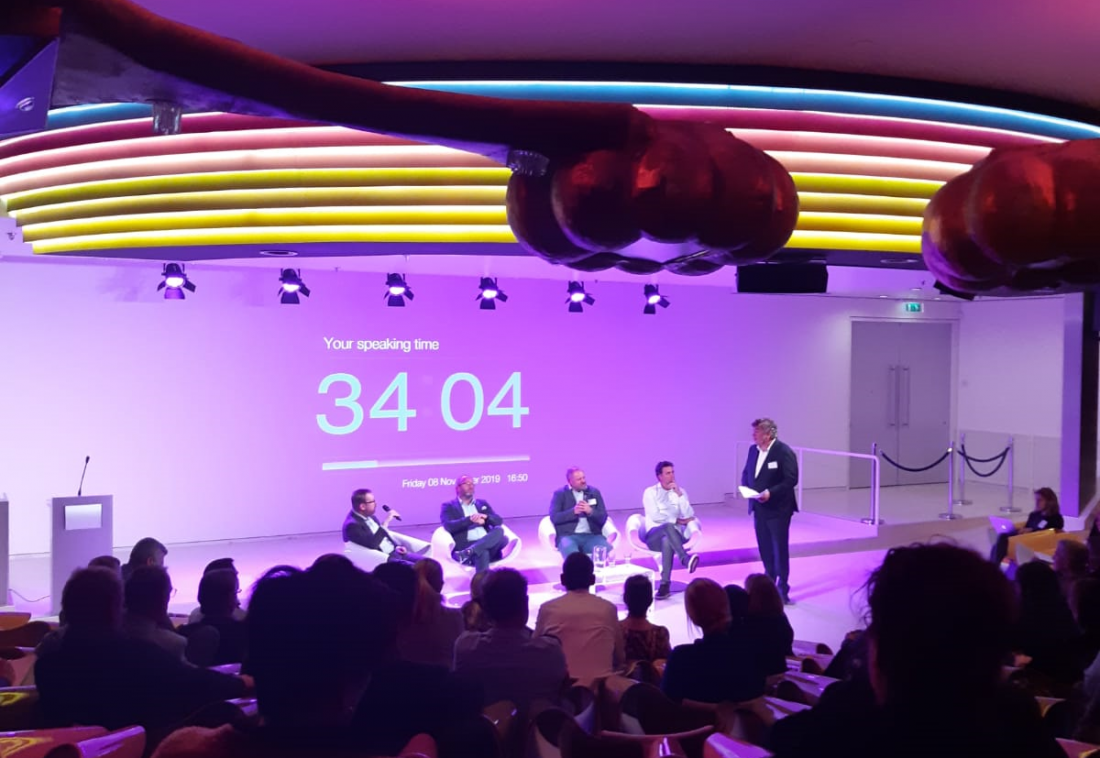Dutch industry reflections on the case of Thomas Cook
With the collapse of Thomas Cook last month, travel agents and tour operators in Europe have gone through a turbulent few weeks. In Utrecht, the Netherlands, tour operators and travel agencies gathered together at the ‘What is cooking in travel’ meet-up on November 8th in order to learn from previous mistakes, see where new opportunities have arisen and how the importance of micro-moments for consumers has an impact on travel organizations and their customer journey. NTG was present at the meet-up and collected interesting insights on lessons learnt for the tour operators and travel agencies that are aiming to keep their heads above water in upcoming years.
Opportunities and threats
A key player has left the industry: Thomas Cook went bankrupt due to large debts and acquisitions 10 years ago (AD, 2019). Furthermore, due to the fast-changing landscape, especially in terms of the adoption and implementation of digital innovations by competitors in the industry, Thomas Cook did not keep up with the pace. Arjan Kers, General Manager of TUI, and Erik Jan Reuver, Director at SGR – financial security fund, spoke at the travel meet-up about the turbulent moments after the collapse of Thomas Cook. These executives explained how they were able to help the victims: the customers of Thomas Cook who were at the destination or had paid for a holiday in the future.
The Netherlands is in a fortunate position as it has the help of SGR, a financial security system that provides damage cover when an organization, in this case, Thomas Cook, goes bankrupt. In this way, Dutch customers of Thomas Cook were able to either get their money refunded or book another holiday via other tour operators such as TUI. Arjan Kers mentioned that all tour operators and travel agencies together performed such a good job that led to a stable image of the relevant activities from TO’s and TA’s.
However, now that such a big player in this industry has shown that they were not able to keep up with the pace; businesses in the travel industry have had an immense wake-up call. Although these companies can reach out to previous Thomas Cook customers, they should also focus on the digital pace that we are currently living in, and adapt there where necessary.
Growing importance of transparency in the travel industry
Corné den Braber, one of the key speakers of the event from RED online marketing agency in the Dutch travel and recreation industry, inspired many of us with an ambitious talk on the changing perspective of consumers. He argued that tour operators and travel agencies should be able to catch consumers in the micro-moments of this fast-changing world. It is all about observations and adaptions. An example he gave was that the websites of today should be checked more frequently in order to see whether all details work perfectly, so there is not any second lost as 53% of users abandon a mobile site if it takes more than 3 seconds to load (see figure 1: the importance of loading time, below).

Figure 1: The importance of loading time
A key insight that Corne shared with us, is that ‘the customer journey’ does not exist anymore in the way that it used to. Right now, organizations must focus on personalizing the new customer journey. This also means that organizations need to become more transparent. When someone looks up a hotel on Google, price transparency plays a major role: different platforms and providers show the price that they ask, see figure 2 below.

Figure 2: Screenshot of price transparency on Google
Back to the heart of the organization
When it comes to digital efforts that should be carried out by tour operators and travel agencies nowadays; there are several aspects that are important. Firstly, businesses should reconsider their purpose, the ‘why’ they do what they do again. This is captured in the center of the Golden Circle by Simon Sinek (see figure 3 below).

Figure 3: Golden Circle by Simon Sinek (VC, 2017)
Businesses should think about the following aspects in order to be able to communicate the right messages, to the right people, on the right platforms:
- What do they do? What are you offering?
- How? What is their uniqueness compared to other organizations?
- Why? The purpose and the reason why organizations do what they do.
When the different aspects of the Golden Circle are optimized again, different messages can be composed based on the target groups and shared on the most applicable social media platforms.
In order to survive in this highly competitive and online market, Corne came up with three main conclusions that businesses nowadays should focus on: share your story, be there where your consumer is and make sure to adapt to the demand.
Key take-away from the travel meet up
Now that the industry has seen the bankruptcy of a major player in the field, all companies know that standing still and not moving forward can lead to catastrophic failure. If one wants to remain in this industry, trends and developments must be observed and followed in order to keep up with the competition.
By Lorainne van Liere, involved in the project communication of the Next Tourism Generation Alliance. She is a tourism fanatic, looking for digital innovations and ideas to implement in the industry.
Follow the efforts of the Next Tourism Generation via our website, Facebook, Twitter | #NTGskillsalliance or via LinkedIn
References
VC. (2017). Simon Sinek Golden Circle. Retrieved on November 26 via https://www.valuablecontent.co.uk/blog/is-it-clear-what-youre-selling/simon-sinek-golden-circle




No Comments